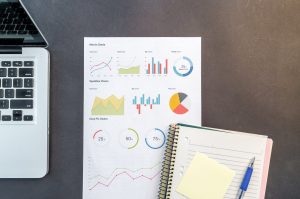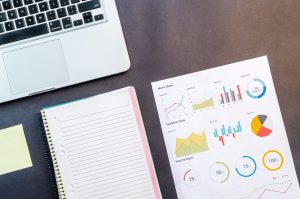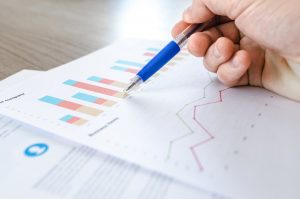In the previous post I spoke about:
- Why are buyer persona such important?
- What are negative buyer persona?
- How to use our buyer persona in Marketing
- How to create a buyer persona
- Some methods to collect information about your buyer persona:
- Where to find people to interview
5. Some methods to collect information about your buyer persona
Where to find people to interview
Clients

The database of your current clients is the perfect place to start your interviews.
They already have your product and know your company.
In theory they should be a representation of your buyer persona.
Interview both ‘good’ and ‘bad’ customers. Those who are unhappy with your product will help you identify areas for improvement, what obstacles, difficulties they have and will also be able to give you an idea of what kind of customers are still not optimal for your company. (Either because your product is very advanced or not; or because you can not offer the service they want … etc).
Your customers usually want to be heard and have an impact on the products they are using, they will probably be more receptive to being interviewed and providing the necessary information.
If you include your customers in the conversation and explain the purpose they will feel more committed to the company.
Prospects
Be sure to include people who have not yet purchased your product or who don’t know your company very well.
The easiest source here is to use your leads and prospects, as they are in your database and you have their information.
Use the information you’ve collected about them to understand who can fit the buyer profile you’re creating.
External Network
If you are entering a new market or do not yet have contacts in your database, you will have to find people within your network who can recommend you more people to interview – it is preferable that they come recommended by people within the company, customers, social networks.
You may find it difficult to find many people to interview if you are in this situation use creativity and social networks to find them.
For example you could use Linkedin to find people who match the profile you are looking for, whether they are connected to you or you have a common connection.
Recommendations for recruiting people for interviewing:

Once you start to find people you potentially want to contact, here are some recommendations for starting interviews and surveys:
Don’t use incentives.
Incentives can deviate from purpose and can influence the kind of responses you get.
What you want is for the information to be voluntary and not manipulated.
If you see that without incentive it doesn’t work, you can try using them. As with everything in digital marketing there is no one size fits all, each company and each industry has its own characteristics, challenges and difficulties. You’ll have to try it to see what works for you.
Personalized interviews instead of groups.
When you do group interviews you may find yourself in a situation where someone with a lot of personality manipulates the opinions of others.
Or someone shy who can offer you valuable information may not dare to speak. It is best to do interviews directly with the person in order to get the most out of them.
Explain the purpose of the interview.
Be clear and explain the reason for the interview, which is not a sales call. As we mentioned earlier, your current and potential clients like to be part of the conversation.
If they understand that you’re not trying to sell, they’ll feel more comfortable with the conversation.
Make it easy.
Be flexible, give them time options for the interview and do everything possible to make it an experience tailored to their needs.
How many people do you have to interview to create your buyer persona?
The million dollar question, and the truth is that it depends. Start by interviewing between 3 and 5 people for each persona you are creating. This may be enough if you already have a lot of information.
You’ll see patterns in the answers, and when you start predicting what the respondent is going to say, you probably already know enough.
6. 20 questions to create your buyer persona

The questions will depend a lot on the type of company, product or service you have and the kind of answers you’re looking for.
Questions about the job
1. What is your job position?
2. How do you measure the outcome of the work you do?
3. Describe a typical day in the office
4. What talent and knowledge do you need to do your job?
5. What tools do you use?
6. Who is your boss? Who reports to you?
Questions about their company
7. What industry do you work in?
8. What is the size of your company?
Questions about their goals
9. What are your responsibilities?
10. How do you define the success of your work?
Questions about their challenges
11. What are your main challenges?
Questions about where they search and consume information
12. Where do you look for information to learn about your job and what’s going on in your industry?
13. What blogs, magazines or websites do you read?
14. What social networks, groups or communities do you belong to?
Questions about their Personal profile
15. (If appropriate) Ask for demographic information: age, marital status, children…)
16. What education have you received?
17. Explain your career
Questions about how they buy

18. How do you prefer to communicate with suppliers, by email, phone, in person?
19. Do you use the internet to search for suppliers? If yes, how is your search process?
20. What was the last thing you bought? What was the evaluation process and why did you decide to buy it?
The secret of success when doing interviews to create your buyer persona is to understand the value of the question: Why?
The objective of these interviews is to understand what the objectives, challenges, needs and behaviors of these people are.
It’s about understanding why they do what they do. For example, we don’t care if people measure the traffic on your website, what interests us is that they need to measure it in order to explain to their boss that they are doing a good job.
Start with an easy question, my favorite – what’s your biggest challenge? From his answer try to go as deep as possible, you’ll learn more with a question like why, than with any other superficial question.
7. How do you use the results of your surveys and all the research to create your buyer persona?
Once you finish the research phase, interviews and surveys you will have a lot of valuable information about your current and potential customers, the next step will be to understand what to do with all that information.
Remember that the goal of this exercise is to identify patterns of behavior and similarities between the responses obtained.
With the information you obtain you will create a buyer persona.

